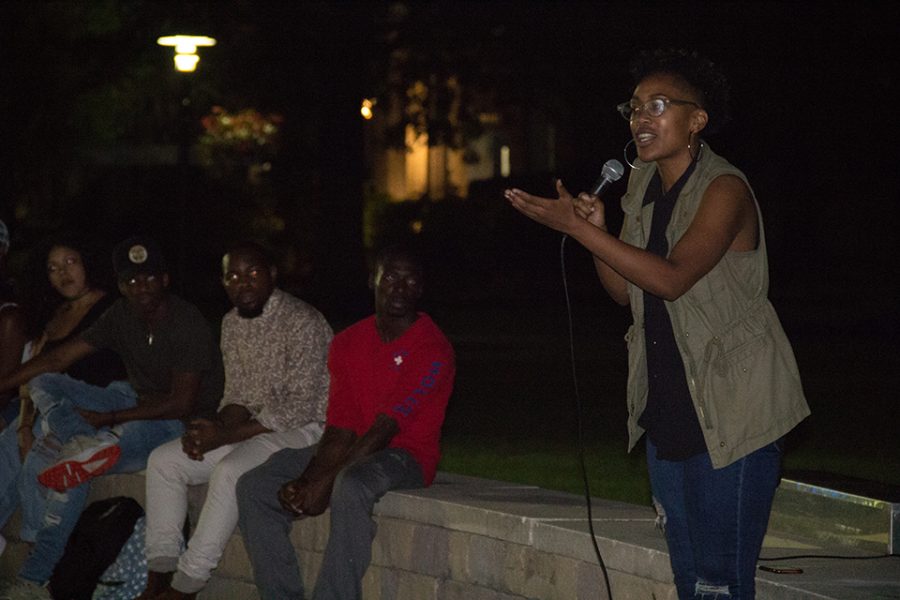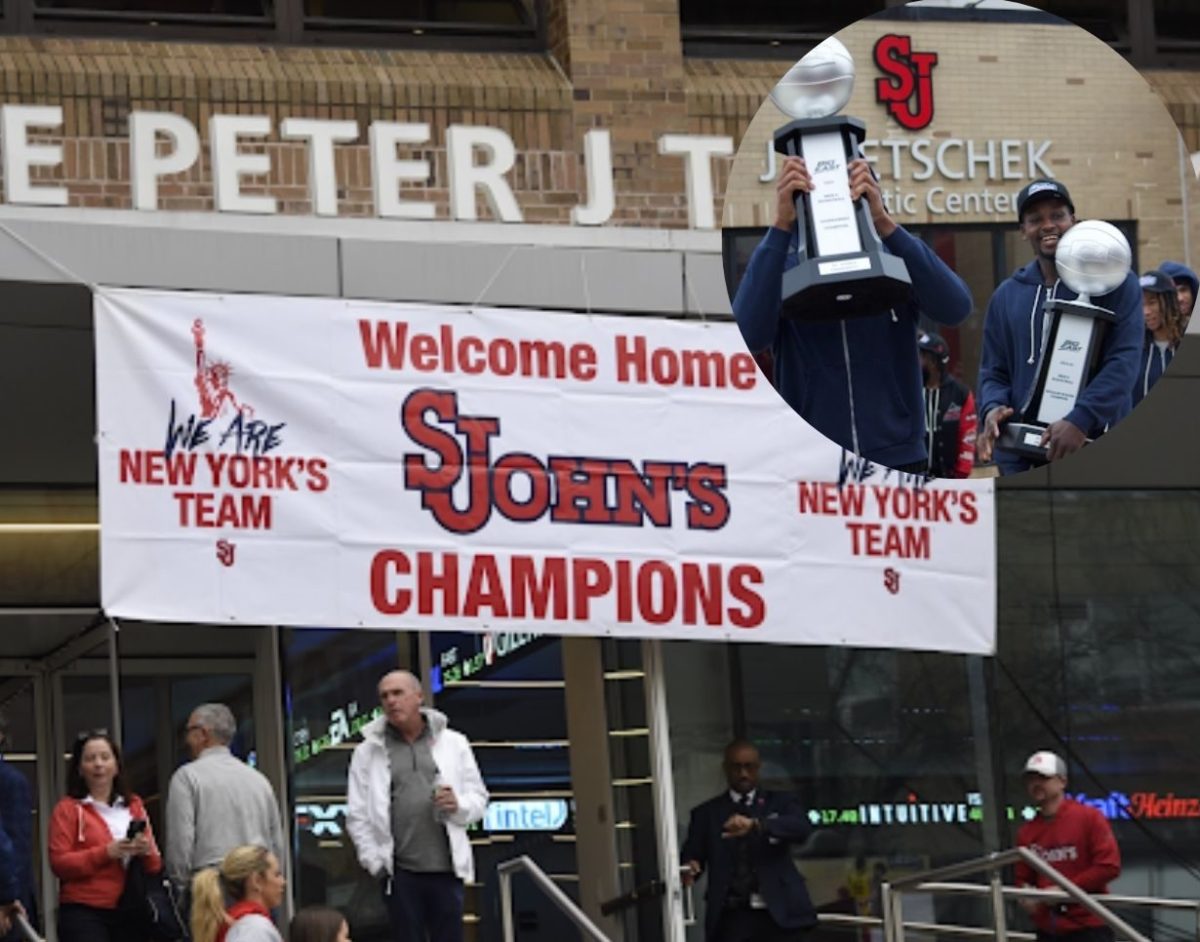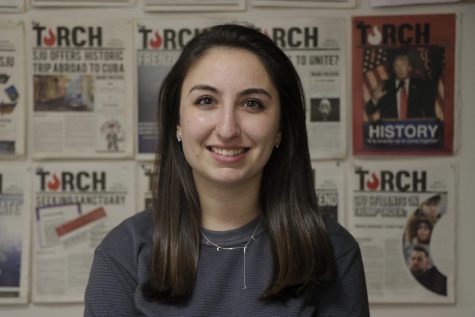Discussion of racial discrimination, gun violence, police brutality and the St. John’s students made victims of these causes were the reason for the melancholy energy on Sept. 8 during Haraya’s Peace Vigil. The vigil, hosted by Haraya, was broken up into three sections: opening thoughts, keynote speaker and candlelight ceremony.
“It never gets easier doing these vigils because it’s too much,” admitted Black Lives Matter advocate Kenneth Shelton Jr. “Change takes place from us. It’s in the little things, like a smile.”
Posters sitting behind Shelton read, “We were all humans until: Race classified us, wealth divided us and religion separated us,” “Our lives warrant more than a #hashtag’”and “We’re still here.”
Others then began mentioning the students who were killed this summer from gun violence, Tiarah Poyau and Arshell Dennis.
Poyau’s friend since freshman year, Bianca Borgella, described her as beautiful, driven, smart, amazing and young.
“It could have been anyone,” said Borgella, “She’s looking down. Do what you have to do, graduate and follow your dreams.”
Graham Burke-Green, an accounting major along with Poyau, said, “She motivated me. You can’t control some things, surround yourself with good people. Don’t waste an opportunity to be great- she would have been so great.”
Roberto Benoit put into words the confusion he felt, “Not too sure what to say or also why I’m up here – but something needs to be said. They didn’t deserve this. It breaks my heart. I’m still trying to make sense of everything.”
The keynote speaker of the night, SJU alum Rebecca Hippolyte, dedicated her speech to making listeners feel united and looking to God for peace, hope and love.
She taught the crowd the Nguni Bantu term “ubuntu” roughly translating to “human kindness” and as Nelson Mandela famously said, “I am because we are.”
Hippolyte explained how Mandela was able to picture a better South Africa while using this term, just as she said she is able to see a better world for the black community.
While continuously calling her audience, “My queens” and “My kings,” Hippolyte preached what their purpose is and analyzed readings from Paul 8:28 and Ephesians 3. With references ranging from the Civil Rights Movement to Flava Flav, Hippolyte’s speech was empowering as she ended it saying, “Your uniqueness is what the community needs.”
The candlelight ceremony was undoubtedly the most emotional part of the program where tears, anger and silence were palpable.
The song “Bread of Heaven” was sung while listeners held their candles in a large circle on the Great Lawn. A choked up Shania Louis-Byron, secretary of the NAACP, reassured everyone, “It’s okay to be vulnerable.”
While an angry Junior Doh, Haraya Vice President of Services, shouted.
“We are brothers and sisters,” he continued. “How can you hurt your sister? Black women have no reason to submit themselves to the needs of men.”
As the program came to a close, sophomore Todd Davison admitted that although it was not a joyous occasion, it’s a time to all come together.
“The vigil is a great time to reflect in all the madness that society has occurring on a daily basis. We remember those with deep admiration and love as well true gratefulness for how they touched the lives of others, even if for a brief moment,” said Davison, “It’s a reminder that life comes slow but can leave us at any moment in time.”
Committee member of LASO, sophomore Sieta Leon, stated, “The peace vigil made me recognize how short life is and how it can be taken from anybody. Tonight’s vigil is not something I will forget.”
In a night brought together by heartbreak, loss and unanswered questions, those who attended left the Great Lawn remembering the simple but powerful words spoken by Haraya president Ricardine Laventure: “You are loved.”
















